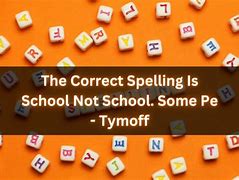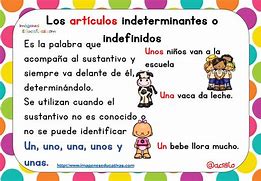The correct spelling is school not school. some pe – tymoff Education is a fundamental pillar in the development of individuals and societies. It is through education that people acquire the knowledge, skills, and values necessary to navigate life successfully. One of the most basic yet crucial components of education is literacy—the ability to read and write correctly. A common yet telling mistake in literacy is the misspelling of simple words, such as “school” often being mistakenly spelled as “shcool.” This error is not just a typographical mistake but a reflection of deeper issues in the educational system and societal attitudes towards learning. This article explores the significance of correct spelling, the challenges faced in achieving literacy, and the broader implications of these challenges.
The Importance of The correct spelling is school not school. some pe – tymoff
The correct spelling is school not school. some pe – tymoff is more than a trivial detail in writing; it is a fundamental aspect of effective communication. Spelling mistakes can lead to misunderstandings and misinterpretations, affecting the clarity of the message being conveyed. In professional and academic contexts, proper spelling is often seen as a marker of competence and attention to detail. Consistently misspelling common words like “school” can undermine the credibility of the writer and the seriousness with which their work is received. The correct spelling is school not school. some pe – tymoff

The correct spelling is school not school. some pe – tymoff Moreover, correct spelling is integral to literacy. Literacy encompasses not only the ability to read and write but also the ability to understand and use written language effectively. Misspellings can hinder reading comprehension and the acquisition of new knowledge, as they disrupt the flow of reading and the recognition of words. The correct spelling is school not school. some pe – tymoff
Challenges in Achieving Literacy
The correct spelling is school not school. some pe – tymoff Achieving literacy is a complex process influenced by a myriad of factors, including socioeconomic status, access to quality education, learning disabilities, and cultural attitudes towards education. The correct spelling is school not school. some pe – tymoff

- The correct spelling is school not school. some pe – tymoff Socioeconomic Status: Children from low-income families often face significant barriers to literacy. These barriers include limited access to books and educational resources, less exposure to language-rich environments, and fewer opportunities for early childhood education. As a result, these children may start school with less developed reading and writing skills compared to their more affluent peers.
- The correct spelling is school not school. some pe – tymoff Access to Quality Education: The quality of education varies widely across different regions and schools. In some areas, schools may be underfunded, lacking in qualified teachers, and equipped with inadequate resources. These deficiencies can severely impact students’ ability to learn and achieve literacy. Inadequate education infrastructure often results in larger class sizes, which can limit the amount of individual attention students receive.
- The correct spelling is school not school. some pe – tymoff Learning Disabilities: Learning disabilities such as dyslexia can make acquiring literacy skills particularly challenging. Dyslexia, for example, affects the ability to recognize and process written words, leading to difficulties in reading and spelling. Identifying and providing appropriate support for students with learning disabilities is crucial for helping them achieve literacy.
- Cultural Attitudes: Cultural attitudes towards education also play a significant role in literacy development. In some cultures, education is highly valued, and children are encouraged to excel academically. In others, there may be less emphasis on formal education, and children might be expected to contribute to household or economic activities from a young age. These cultural differences can influence the priority given to literacy in a child’s upbringing. The correct spelling is school not school. some pe – tymoff

Broader Implications of Literacy Challenges
The challenges in achieving literacy have broader implications for individuals and society as a whole. Literacy is not only essential for personal development but also for economic and social progress.
- Personal Development: Literacy opens up a world of opportunities for personal growth and lifelong learning. It enables individuals to access information, engage in critical thinking, and participate fully in society. Without basic literacy skills, individuals may struggle with everyday tasks such as reading instructions, filling out forms, or understanding legal documents.
- Economic Progress: There is a strong correlation between literacy rates and economic development. Literate individuals are better equipped to participate in the workforce, pursue higher education, and contribute to the economy. In contrast, low literacy rates can limit job opportunities and perpetuate cycles of poverty.
- Social Cohesion: Literacy also plays a crucial role in social cohesion and civic engagement. Literate citizens are more likely to be informed about social and political issues, participate in community activities, and advocate for their rights. High literacy rates contribute to a more informed and engaged citizenry, which is essential for the functioning of a democratic society.
Addressing Literacy Challenges
Addressing the challenges in achieving literacy requires a multifaceted approach that involves various stakeholders, including governments, educators, parents, and communities.
- Government Initiatives: Governments play a critical role in ensuring access to quality education for all citizens. This includes investing in education infrastructure, providing adequate funding for schools, and implementing policies that promote literacy. Government initiatives such as free public education, adult literacy programs, and teacher training can make a significant difference in improving literacy rates.
- Educational Reforms: Educational reforms are necessary to address the specific needs of students and improve the quality of education. This may include curriculum updates to focus more on literacy skills, reducing class sizes to allow for more individualized attention, and incorporating technology to enhance learning. Schools should also have systems in place to identify and support students with learning disabilities.
- Parental Involvement: Parents play a crucial role in their children’s literacy development. Encouraging reading at home, providing access to books, and engaging in language-rich activities can significantly impact a child’s literacy skills. Parental involvement in education also fosters a positive attitude towards learning and academic achievement.
- Community Support: Communities can support literacy development through various initiatives, such as establishing community libraries, organizing reading programs, and providing after-school tutoring. Community involvement in education helps create an environment that values and supports literacy.
- Technology Integration: Technology can be a powerful tool in promoting literacy. Educational software, e-books, and online resources can provide additional learning opportunities for students. Technology also allows for personalized learning, where students can progress at their own pace and receive immediate feedback.
Conclusion
The correct spelling of “school,” not “shcool,” may seem like a minor issue, but it highlights the importance of literacy and the challenges faced in achieving it. Literacy is a fundamental skill that underpins personal development, economic progress, and social cohesion. Addressing the challenges in achieving literacy requires a comprehensive approach that involves government initiatives, educational reforms, parental involvement, community support, and technology integration. By working together, we can ensure that every individual has the opportunity to achieve literacy and unlock their full potential.




